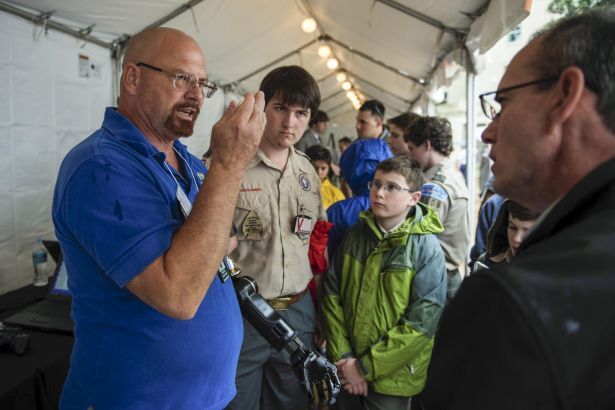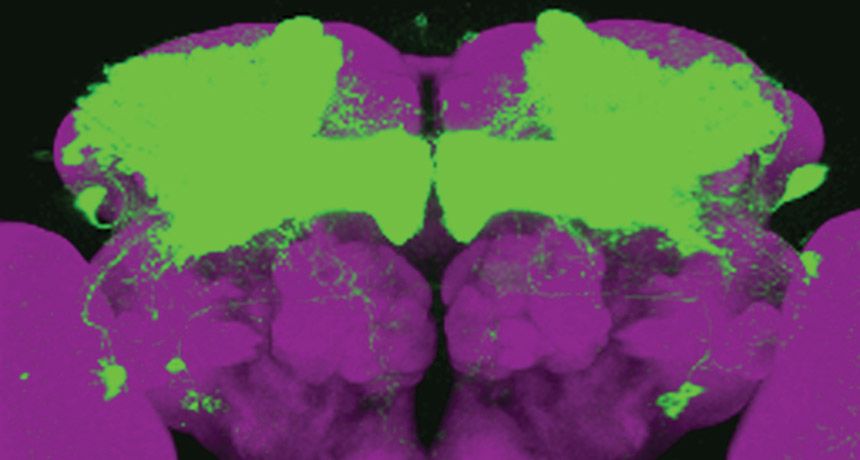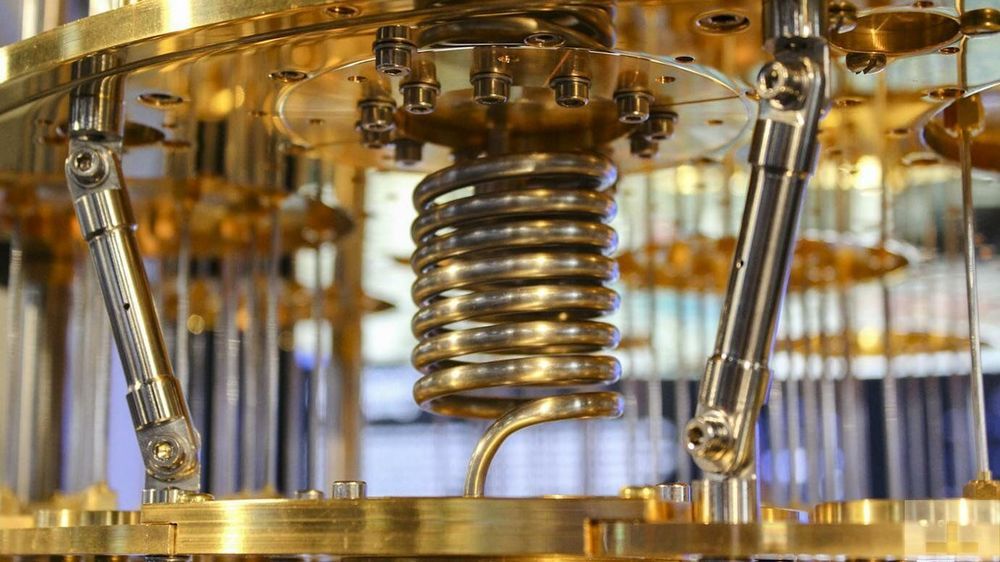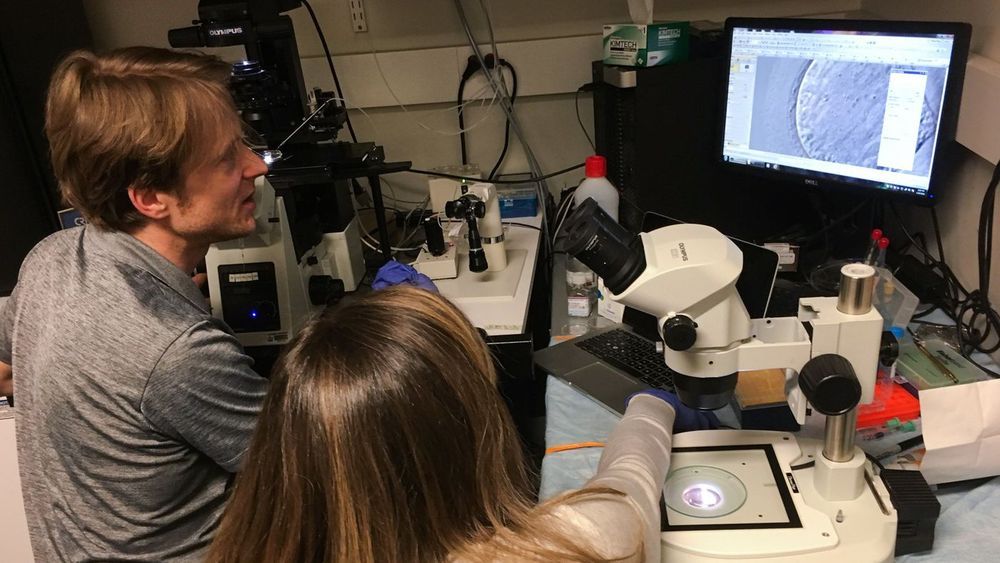Page 8844
Feb 1, 2019
Co4Robots — Milestone 2 Demonstrator
Posted by Caycee Dee Neely in categories: innovation, robotics/AI
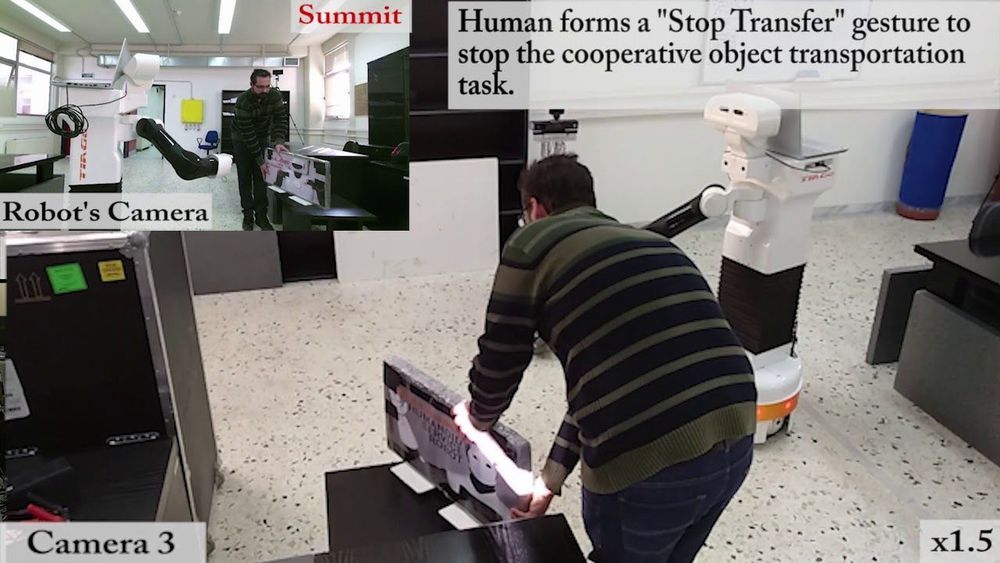
Now, this is awesome. A stationary robot, two mobile robots, and a human cooperating to perform a task. The humanoid robot also interprets human gestures and obeys those commands.
More information: http://www.co4robots.eu/
Feb 1, 2019
Bringing artificial limbs to patients who need them
Posted by Quinn Sena in categories: biotech/medical, cyborgs, military
Johnny Matheny demonstrates how a modular prosthetic limb works during DARPA Demo Day 2016 at the Pentagon, May 11, 2016. Matheny is a test subject with the Johns Hopkins Applied Physics Lab8.
Feb 1, 2019
Unshackling Robots: Self-Aware Machines
Posted by Caycee Dee Neely in categories: engineering, physics, robotics/AI
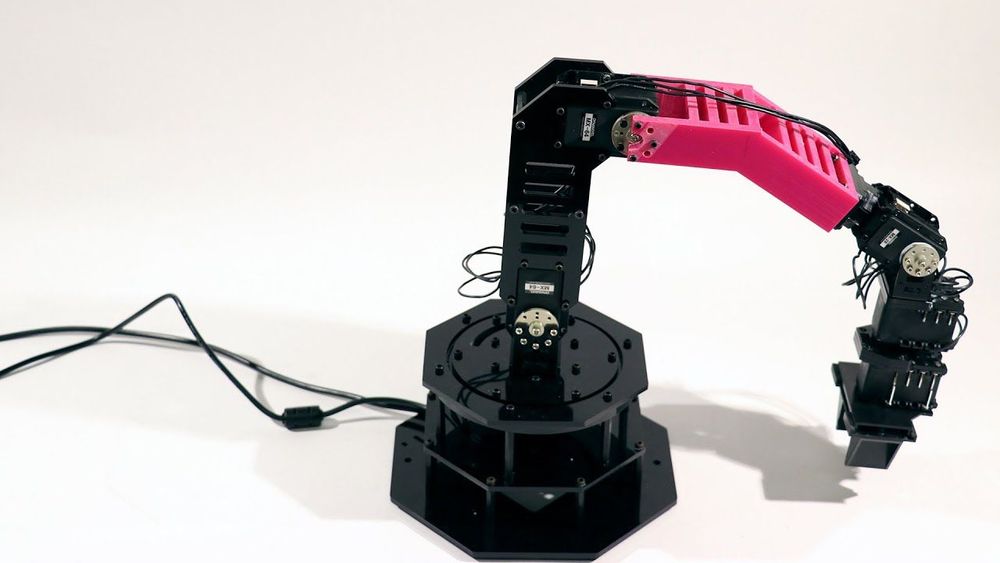
Another step forward in robotics self-awareness. This robot learns it’s own kinematics without human intervention and then learns to plot solution paths.
Columbia Engineering researchers have made a major advance in robotics by creating a robot that learns what it is, from scratch, with zero prior knowledge of physics, geometry, or motor dynamics. Once their robot creates a self-simulation, it can then use that self-model to adapt to different situations, to handle new tasks as well as detect and repair damage in its own body.
Feb 1, 2019
Outdoor Autonomous Flying of Flying-LASDRA with Onboard Sensing
Posted by Caycee Dee Neely in categories: drones, robotics/AI
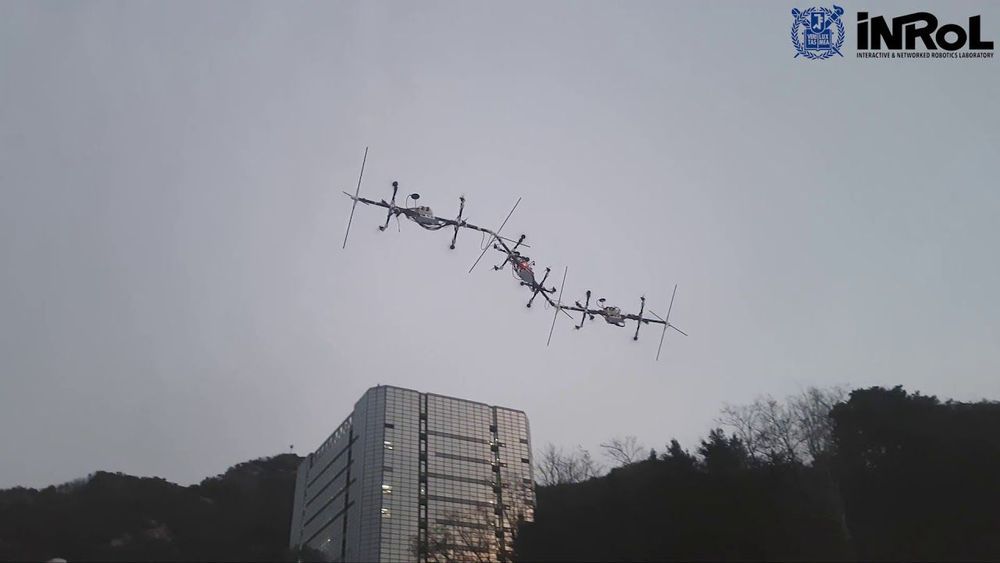
A saying from one of my favorite movies is, “Tie two birds together and even though they have four wings they cannot fly.” Can’t say the same about flying drones.
“We perform outdoor autonomous flying experiment of f-LASDRA, constructed with multiple ODAR-8 links connected via cable with each other. Each ODAR-8 can compensate for its own weight, rendering f-LASDRA scalable. Utilizing SCKF with IMU/GNSS-module on each link and inter-link kinematic-constraints, we attain estimation accuracy suitable for stable control (5cm: cf. 1-5m w/ GNSS).”
Continue reading “Outdoor Autonomous Flying of Flying-LASDRA with Onboard Sensing” »
Feb 1, 2019
This bacteria-fighting protein also induces sleep
Posted by Genevieve Klien in category: biotech/medical
A bacteria-fighting protein also lulls fruit flies to sleep, suggesting links between sleep and the immune system.
Feb 1, 2019
It’s So Cold, Even Teslas Are Freezing Shut
Posted by Genevieve Klien in category: futurism
Feb 1, 2019
Scientists ‘hijack’ open-access quantum computer to tease out quantum secrets
Posted by Genevieve Klien in categories: computing, particle physics, quantum physics
The rules of quantum mechanics describe how atoms and molecules act very differently from the world around us. Scientists have made progress toward teasing out these rules—essential for finding ways to make new molecules and better technology—but some are so complex that they evade experimental verification.
With the advent of open-access quantum computers, scientists at the University of Chicago saw an opportunity to do a very unusual experiment to test some of these quantum principles. Their study, which appeared Jan. 31 in Nature Communications Physics, essentially hijacks a quantum computer to discover fundamental truths about the quantum behavior of electrons in molecules.
“Quantum computing is a really exciting realm to explore fundamental questions. It allows us to observe aspects of quantum theory that are absolutely untouchable with classical computers,” said Prof. David Mazziotti, professor of chemistry and author on the paper.
Continue reading “Scientists ‘hijack’ open-access quantum computer to tease out quantum secrets” »
Feb 1, 2019
Black hole plasma jets shine like cosmic lighthouses in these gorgeous images
Posted by Genevieve Klien in categories: computing, cosmology, particle physics
Stunning new images show how black holes produce tremendously bright jets millions of light-years long that can be seen across vast cosmic distances. The images were produced by a computer simulation and could help resolve an enduring mystery about how the jets form, the researchers behind the images said.
Despite their moniker, black holes aren’t always black. As a black hole consumes an object, gas and dust spins around the maw of the gravitational behemoth, and friction can heat the material on the edges to searing temperatures. This violent process creates lighthouse-like beams of charged particles that travel outward at near light speed, emitting radiation that can shine brighter than an entire galaxy. [11 Fascinating Facts About Our Milky Way Galaxy]
“They are like laser beams piercing the universe and allowing us to see black holes whose emission would otherwise be too dim to be detectable,” Alexander Tchekhovskoy, a computational astrophysicist at Northwestern University in Evanston, Illinois, told Live Science.
Continue reading “Black hole plasma jets shine like cosmic lighthouses in these gorgeous images” »
Feb 1, 2019
New U.S. Experiments Aim To Create Gene-Edited Human Embryos
Posted by Genevieve Klien in categories: bioengineering, biotech/medical, genetics, health
CRISPR And Human Embryo Experiments Underway In The U.S. : Shots — Health News Despite outrage over gene editing in China that affected the birth of twins, research is underway in the U.S. to assess the safety and effectiveness of CRISPR tools to edit genes in human embryos.

